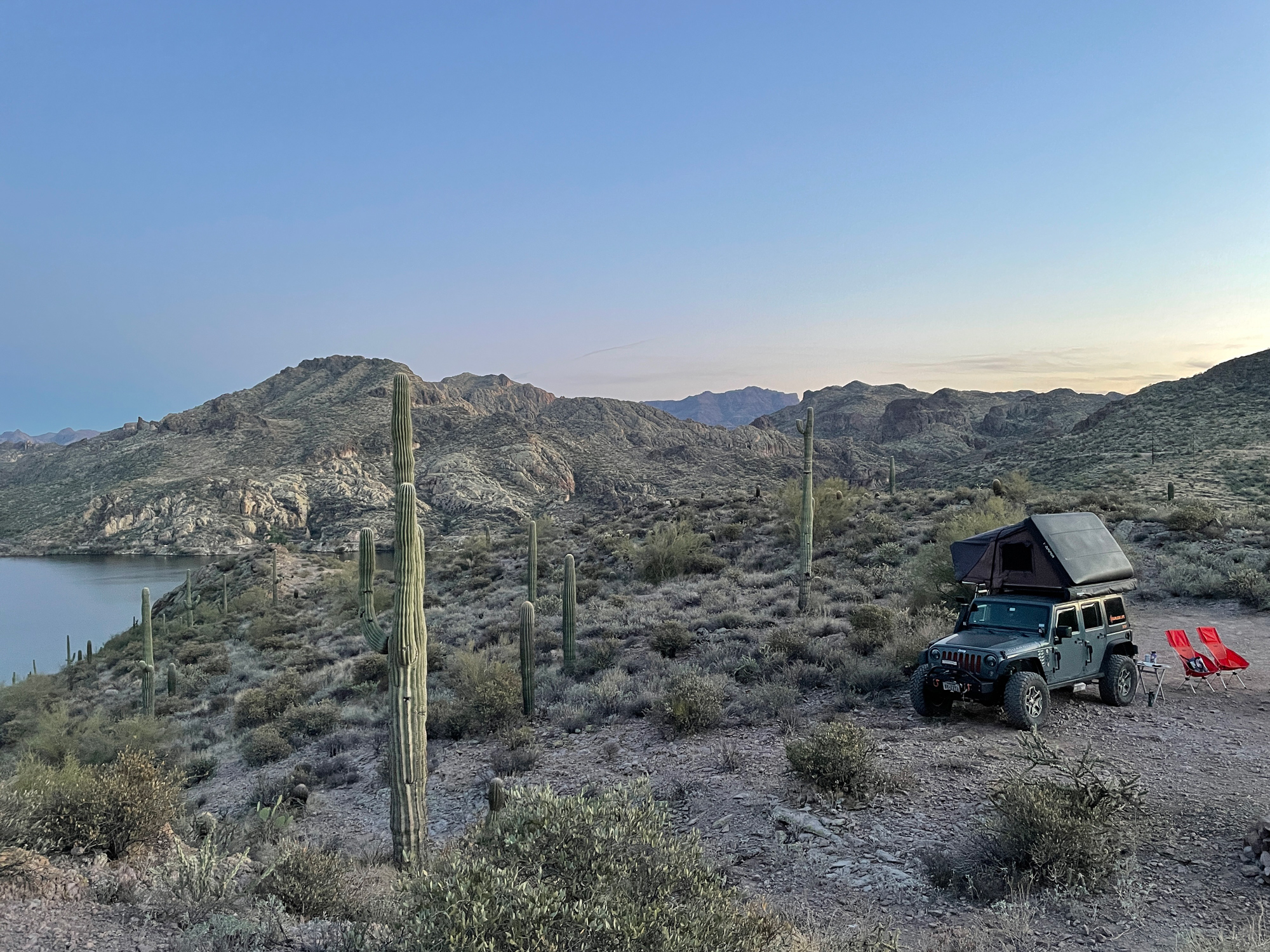Not as a complete definition, but as an often-overlooked component, I’ve started describing overlanding as “intentional self-deprivation.” This is the part you rarely see on Instagram.
Those who use the activity to escape the city and trials of work-life could probably care less. Even when the weather doesn’t cooperate, disappointing for sure, it’s all part of the adventure before returning home to a hot shower and clean clothing.
For those of us who live on the road, it’s different. For us, overlanding requires divesting ourselves of many comforts. Their lack can be felt keenly—especially at first.
Let me describe what I mean before addressing how my family sustains this kind of lifestyle under often adverse conditions.
Intentional Self-deprivation
I’m writing from the United States of America in 2021, where most of us are used to a certain standard of living. We’re constantly being sold additional material possessions in the name of efficiency, modernity, and status.
In that context, the first way we intentionally deprive ourselves as full-time overlanders is a simple matter of volume. Comparing the capacity of a four-door Jeep Wrangler to the typical single-family dwelling is like comparing the size of a human adult to a blue whale in your favorite biology textbook. We can’t hold much.
No walk-in closet here. My husband, four-year-old son, and I each get a duffel bag for clothing. Whatever fits in the duffel bag gets to travel.
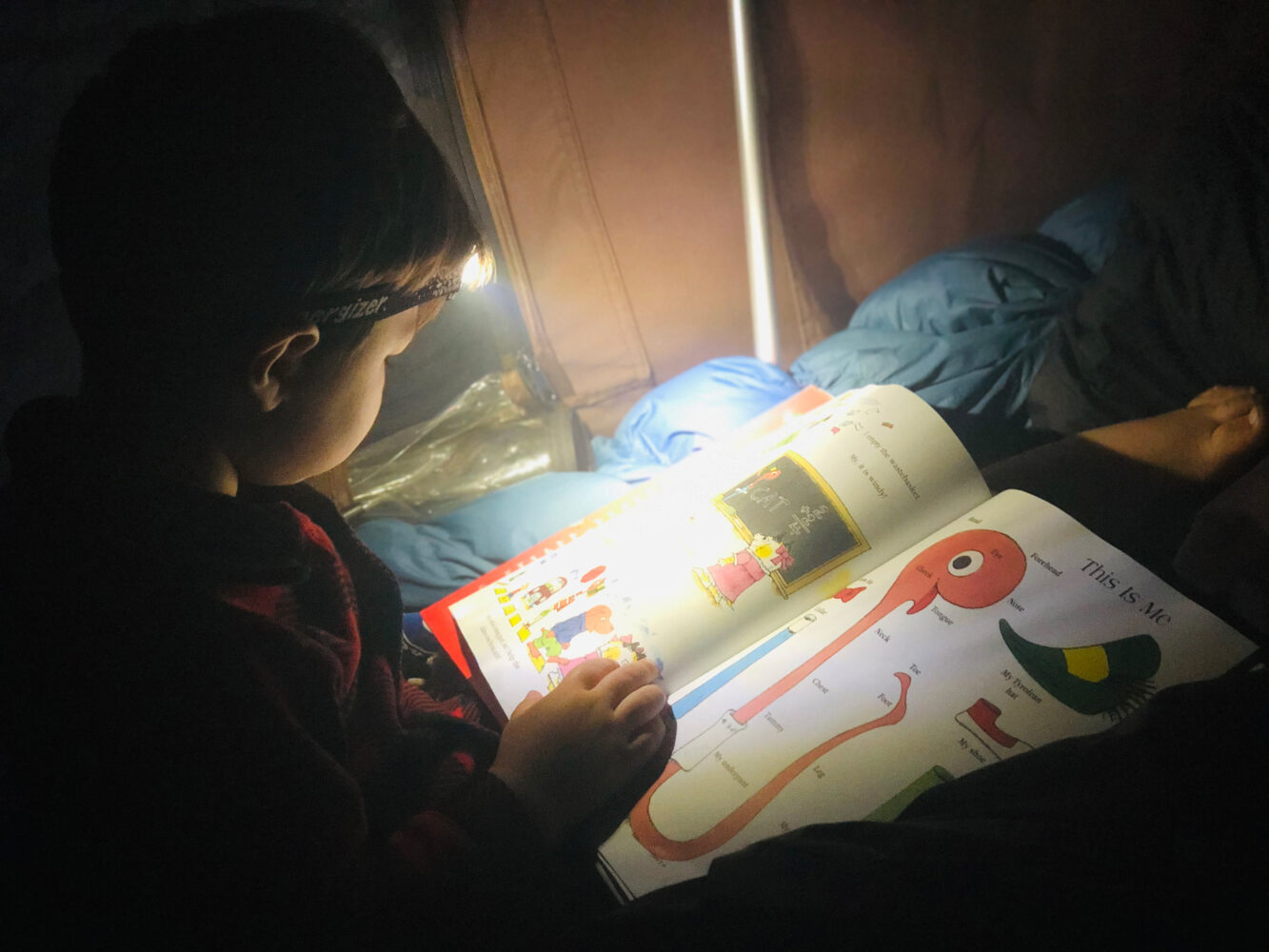
Beyond payload capacity, exposure to the elements is a constant challenge. When you’re constantly shuttling between your home, climate-controlled vehicle, and work, perhaps taking lunch or a walk during the nicest part of the day, the body doesn’t feel the full impact of the temperature outside. Right about the time you’ve had enough of heat or cold, you can just walk inside.
We can’t. Our only “inside” is a rooftop tent, not exactly climate-controlled, and the cab of our vehicle. Since we can’t function exclusively inside of either, the only alternative is to be outside and cope the best we can.
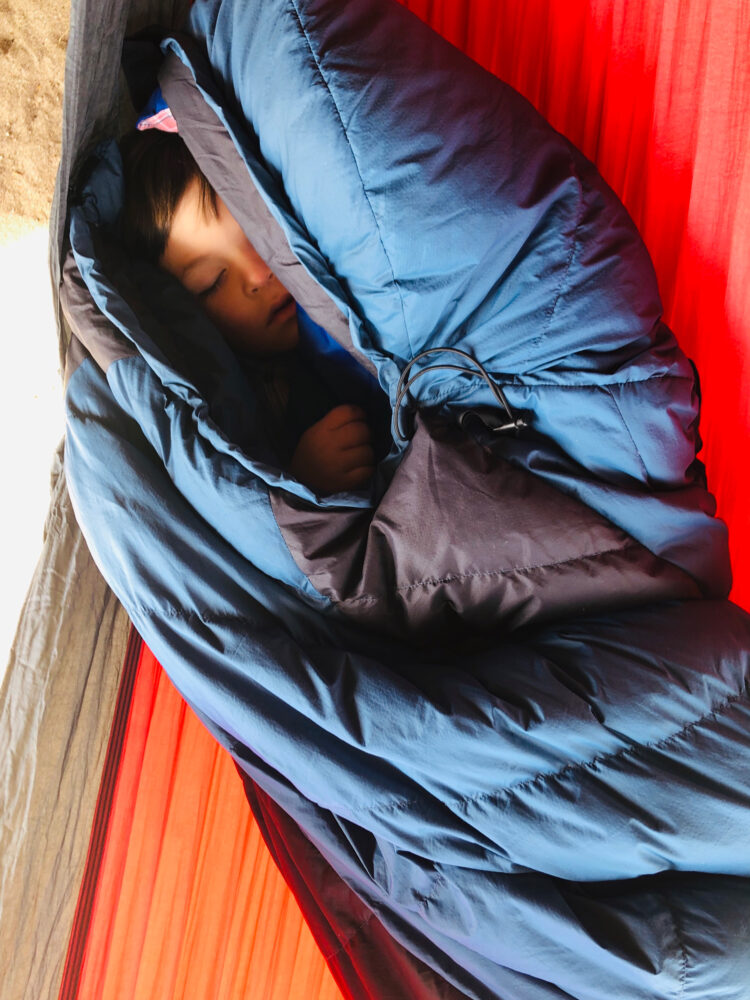

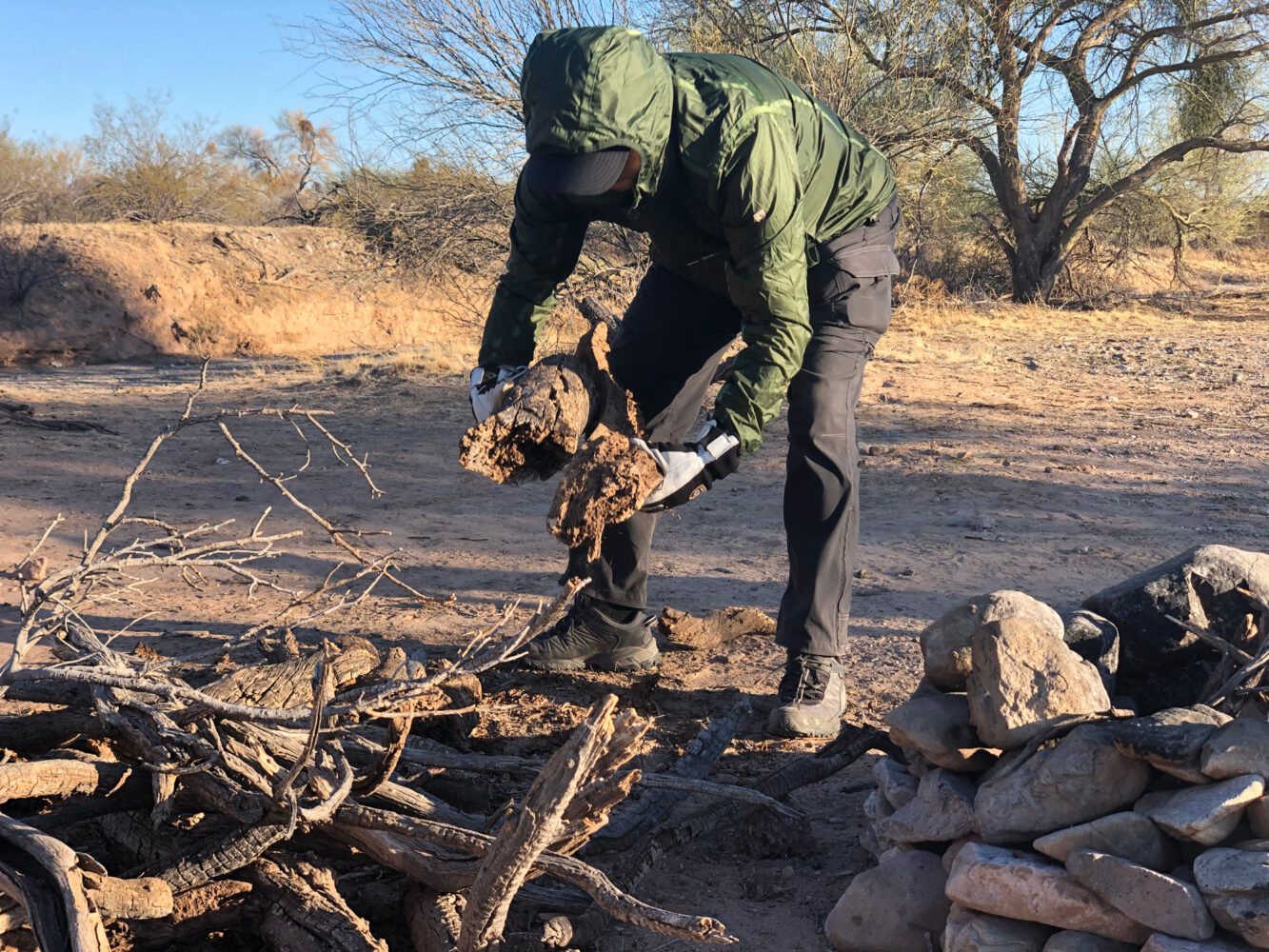
One final way we do without is related to logistics and the unpredictability latent in each day. Living on the road, a great deal of time is absorbed by unusual rigors. We take time driving from place to place. Though we try not to drive too much every day, sometimes we have to cover more ground than anticipated when we can’t find a suitable camping spot or need a vehicle repair.
Everything takes more time. Though our rooftop tent holds nearly all of our bedding, we still need to shuttle items up and down every day. Doing dishes isn’t a quick job, but it requires heating water, conserving water, then drying and storing before dust makes the whole chore pointless.
Because we have to dedicate all this time to simple tasks we used to take for granted, we have less time to be productive members of society. As we’ve battled high winds and cold weather in the Southwest, my work list has been ignored in favor of survival. Perhaps this is a first-world problem, but it seems to me that eschewing a familiar and comfortable routine is indeed a form of self-deprivation.
Embracing the Lifestyle’s Challenges to Find Sustainability
At this point, you may be wondering why anyone would opt for this level of discomfort. Well, I’ve been wondering that myself. On March 7, our family of three moved into our Jeep. Overlanding isn’t new for us; we’ve taken two extensive trips through mainland Mexico (2019) and Baja (2020), clocking 4,000 miles south of the border thanks to our vehicle.
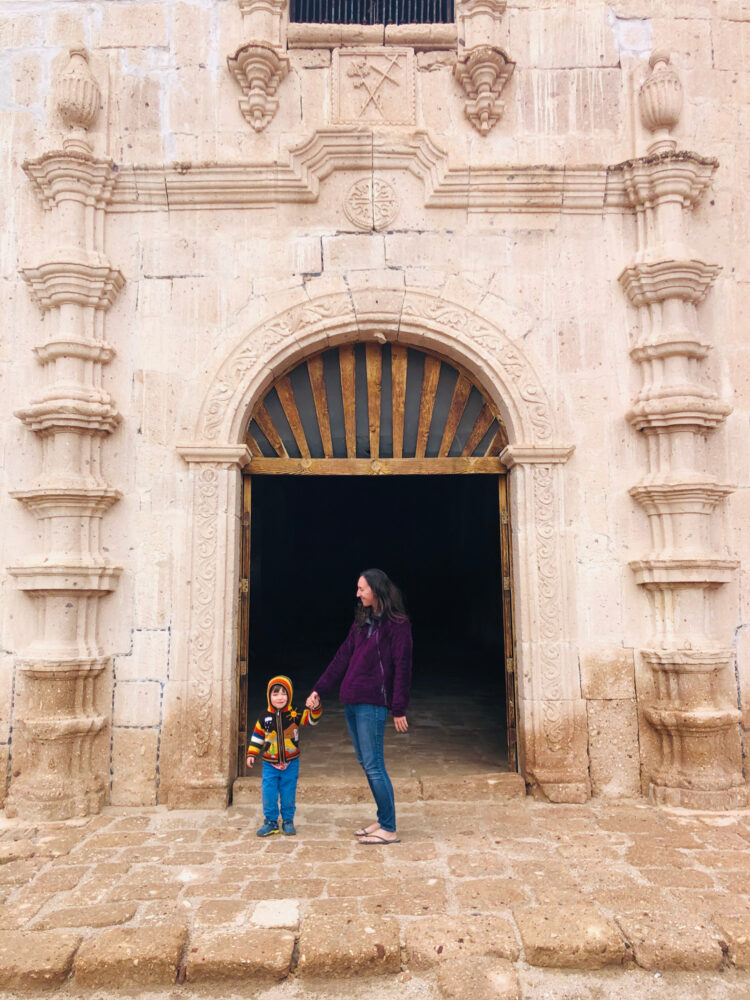
But this time is different. We really, truly live in our Jeep, and it’s going to be long-term. We’ll be in the western United States until June when we take delivery of the 2021 Jeep Gladiator that’s going to see us around the world. Starting late summer 2021, we’re embarking on a global journey we expect will last 10 to 15 years—for the rest of our son’s childhood.
So we have no choice but to embrace the challenges of full-time overlanding. This was my idea, and I can’t back out now (in reality, I can, but I genuinely want to see this through). We’ve developed tactics to make this lifestyle sustainable and enjoyable as we continue to evolve with our chosen lifestyle.
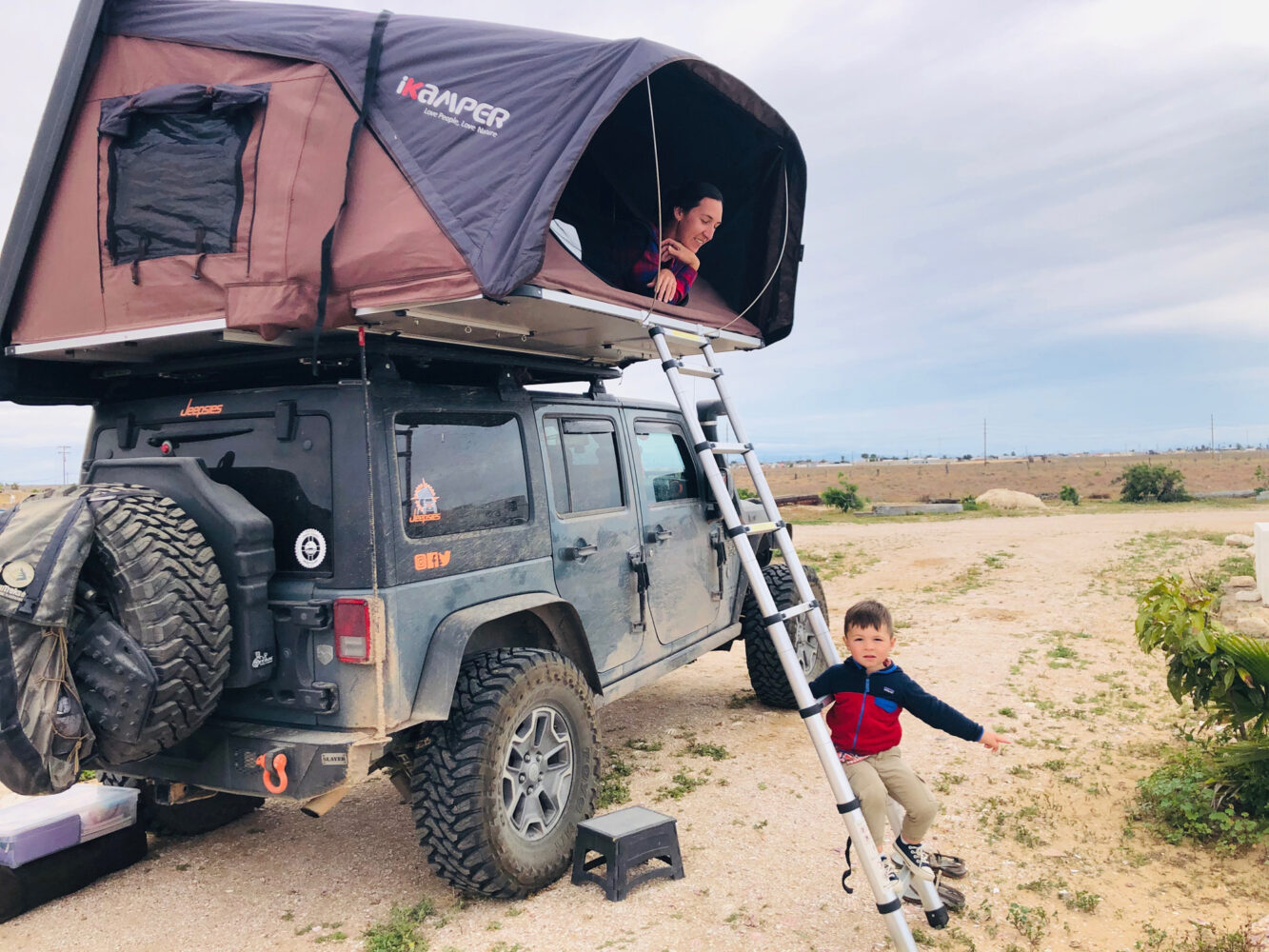
The challenge of cargo capacity fades with time. On February 21, 2014, we locked the door to our two-bedroom apartment in Austin for the last time and began a life of constant travel. We chose an RV as our first home on wheels when it was only my husband and me. But by the time we sold that motorhome in December 2018 and moved into our Wrangler short-term with a one-year-old, we were attuned to how few possessions we needed to function and thrive.
Those weeks we spent with our son in mainland Mexico were thrilling and instructive. Each overlanding trip we took, we tracked which items we used, which we didn’t, and the things we wish we had packed. Over time, we were able to make the necessary tradeoffs with the confidence only experience can bring.
We learned to monitor not only an item’s footprint, how much space it fills, but also its weight. Too late, we realized how overloaded our Wrangler had become, especially with steel bumpers chosen for off-road capability before we started overlanding. Lesson learned, we have a payload capacity spreadsheet for our Jeep Gladiator, with each modification and piece of kit we plan to add for our international drive. Some desired objects won’t fit when we do our final pack-out, but we can live without them in favor of the experiences we’ll gain.
Adverse weather is a harder nut to crack. I’m not sure any amount of experience conditions the body to intense heat, cold, rain, or wind, as our systems’ alarms sound the beautiful warnings that keep us alive. Yet, in one way, we do change. With each weather event we endure, we show ourselves what we’re capable of and increase the level of grit we carry into the next challenge.
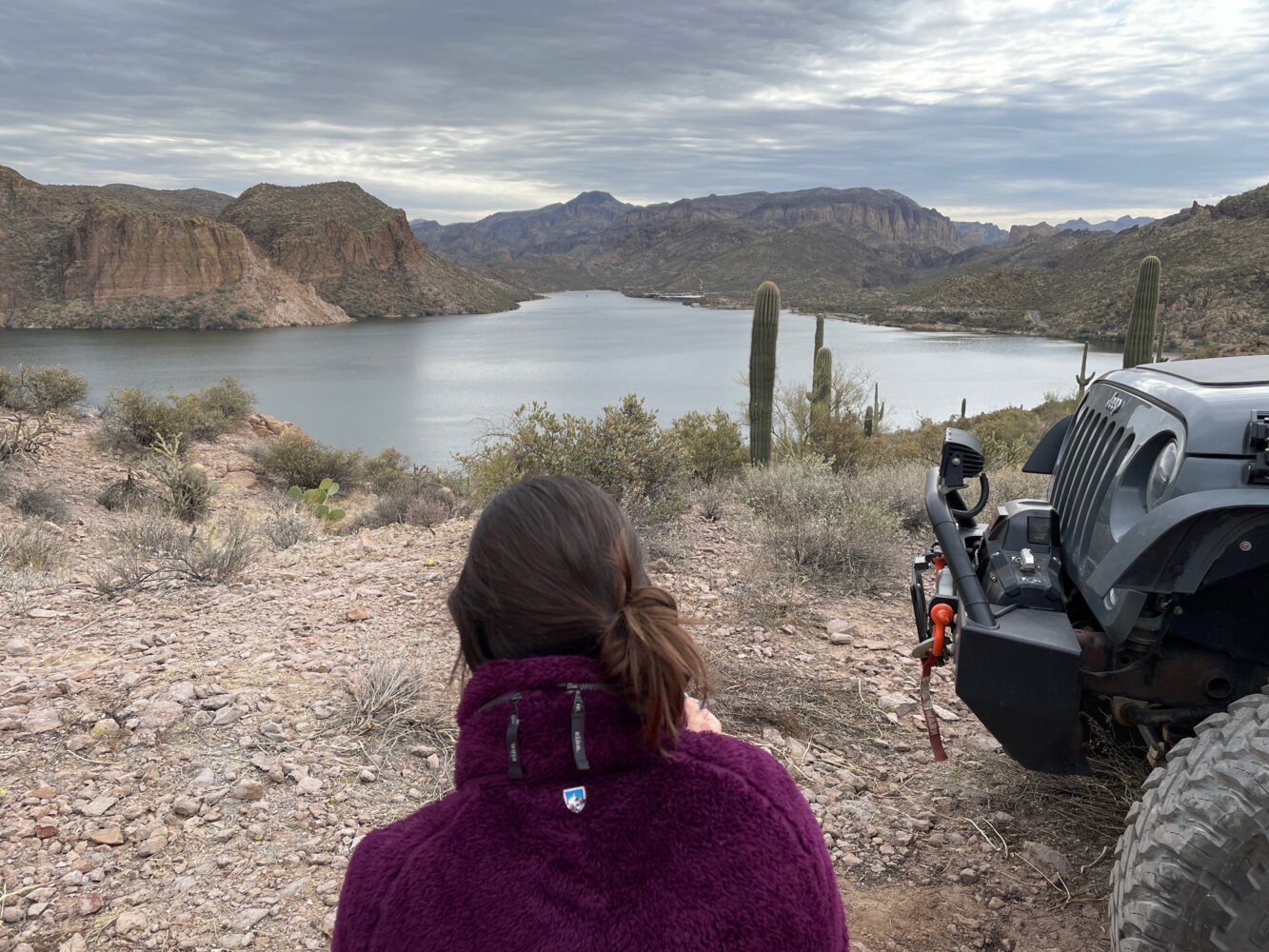
On a more practical level, there are several measures we can take to make this lifestyle sustainable when the weather sours. For rain, we extend our 270-degree awning and attach zip-on walls. Construction takes mere minutes and instantly provides livable space where we can stay dry. We carry a portable propane heater for warmth, which we use with utmost caution and for short amounts of time near tent material.
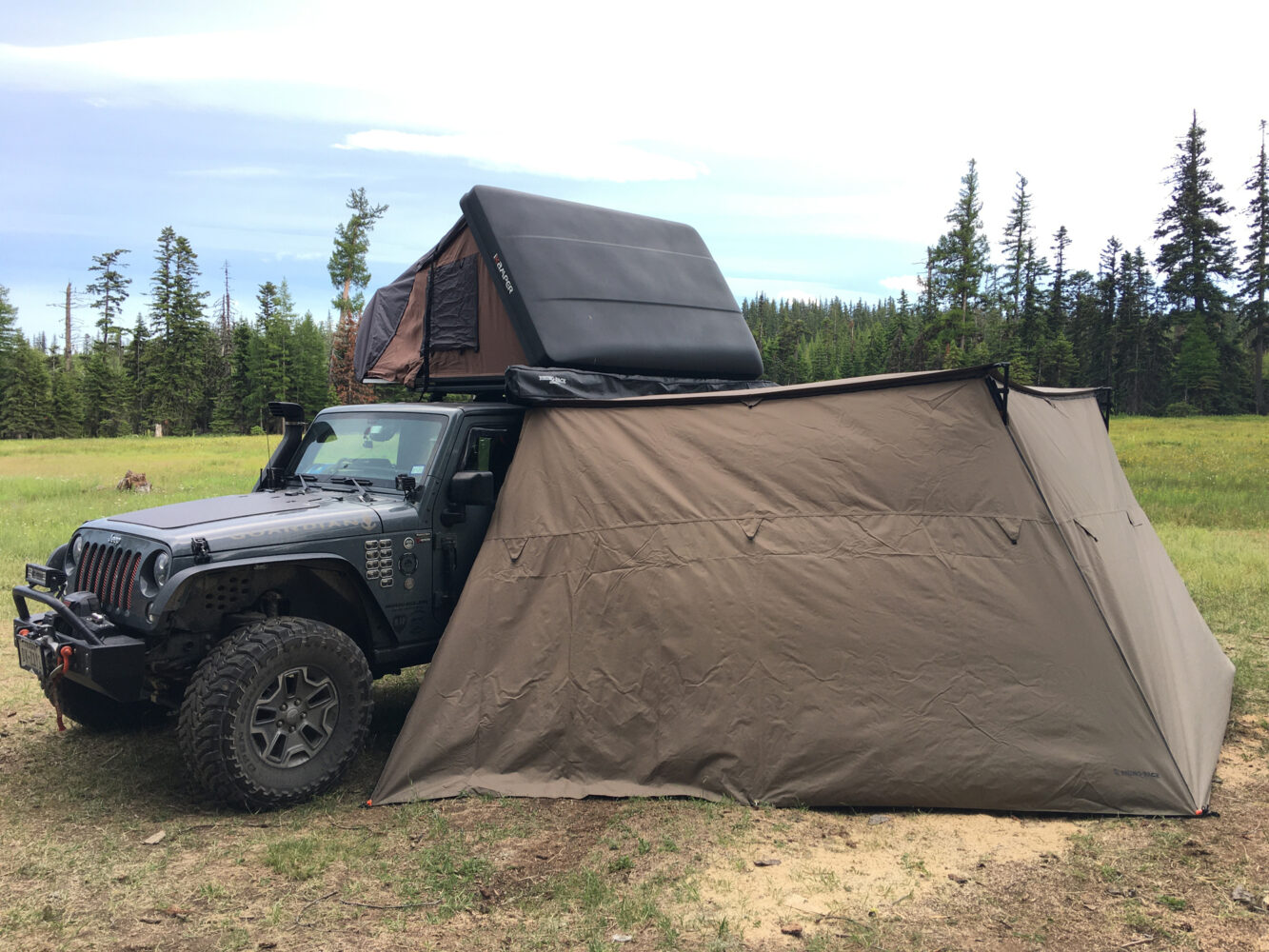
We’re applying what we’ve learned to our next build. Our Alu-Cab Canopy Camper over the rear of our Gladiator will provide solid walls to retreat behind. It will be equipped with a high-altitude diesel heater. We’re also exploring ways to redirect the cab’s air conditioning to the camper while driving.
I used to think I had to sleep with my vehicle every night to be considered a real overlander. But I’ve left that misconception behind, now believing the only way to make this lifestyle sustainable in the long-term is to embrace hotels and Airbnbs from time to time. Sometimes I need the psychological and physical comfort of endless hot water, which allows me to be at my strongest for my family and the border crossings ahead.
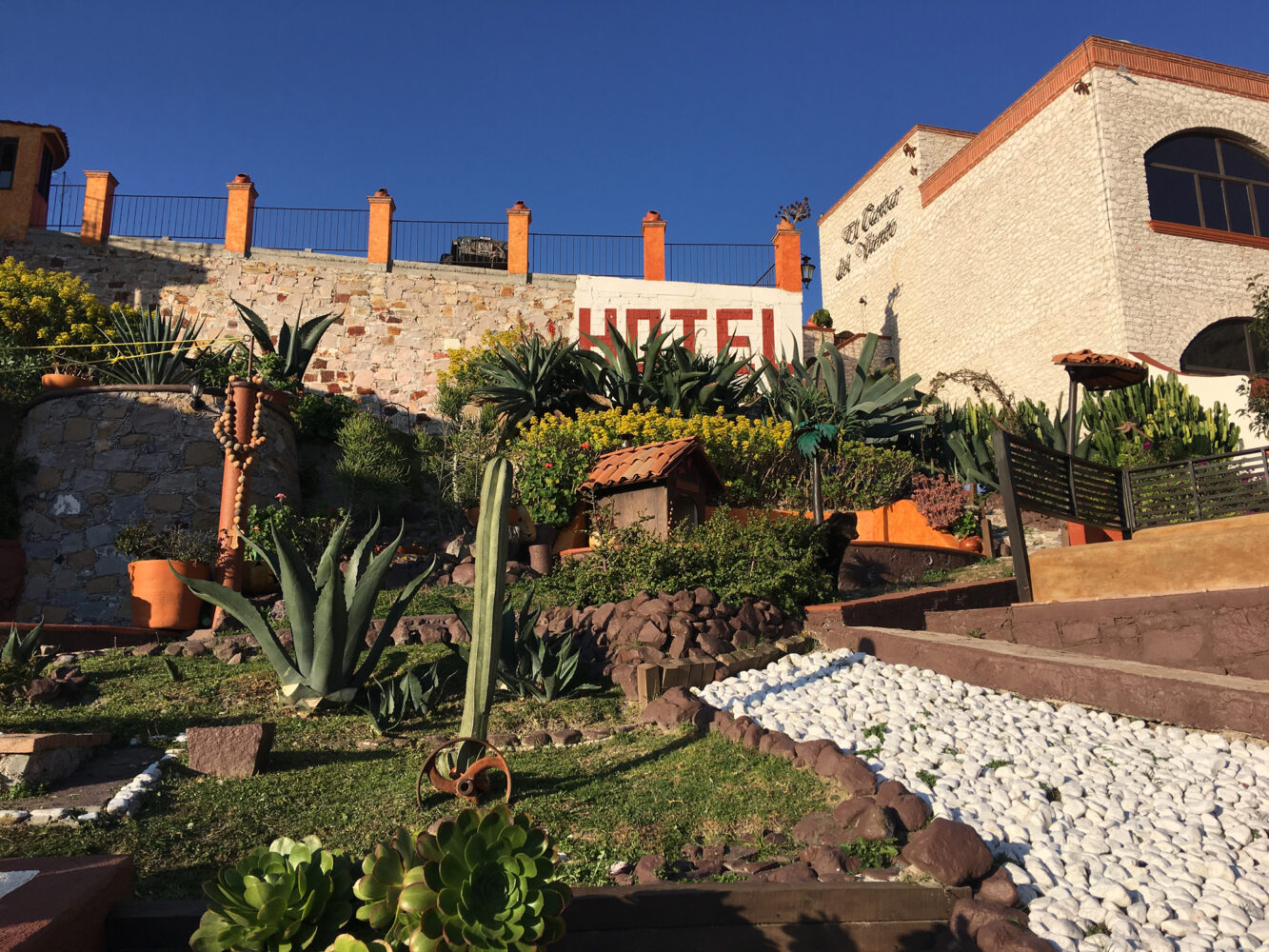
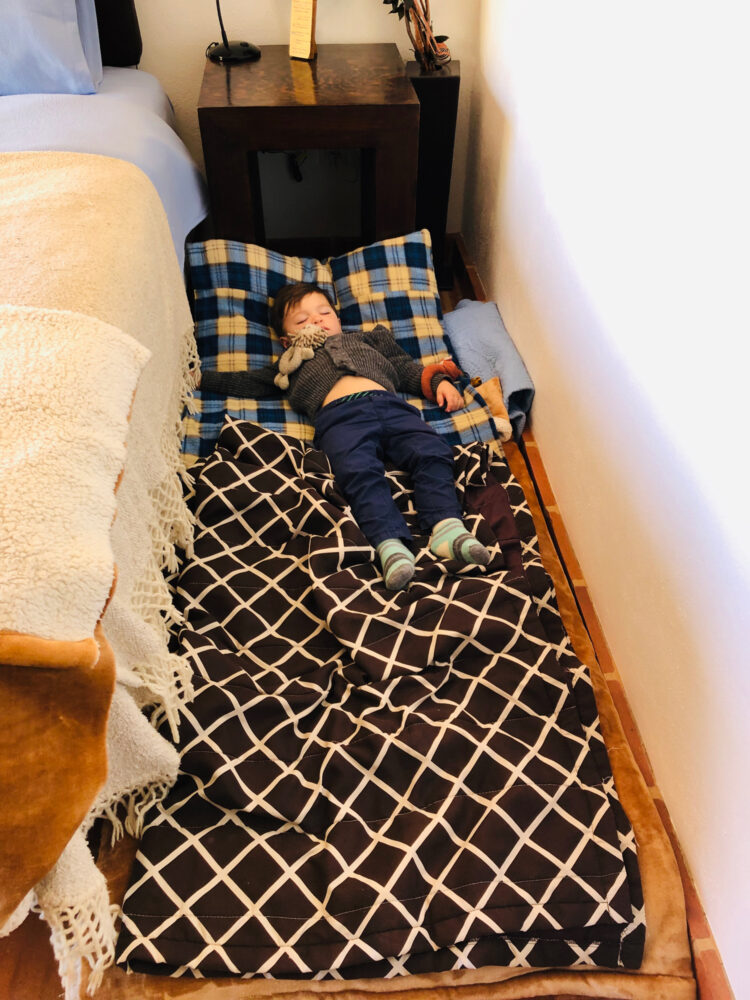
The lack of a comfortable routine on the road, with its extra tasks, simple tasks taking longer, and the unexpected regularly forcing a change of course can take its toll. My manner of coping has been to fight hard. I’ve fought my husband and his lackadaisical (read: flexible) approach to our lifestyle’s unpredictability. I’ve fought for the original plan, even when it didn’t make sense anymore. I’ve gone kicking and screaming through days that could’ve been pleasant had I laid down my oar and let the current carry me.
If possessing very little can be managed through experience, and poor weather can be faced with perseverance and planning, perhaps unpredictability should be met with a little bit of faith and acceptance. Sorry to get metaphysical, but long-term overlanding is not for the faint of heart and requires one to dig deep when weary.
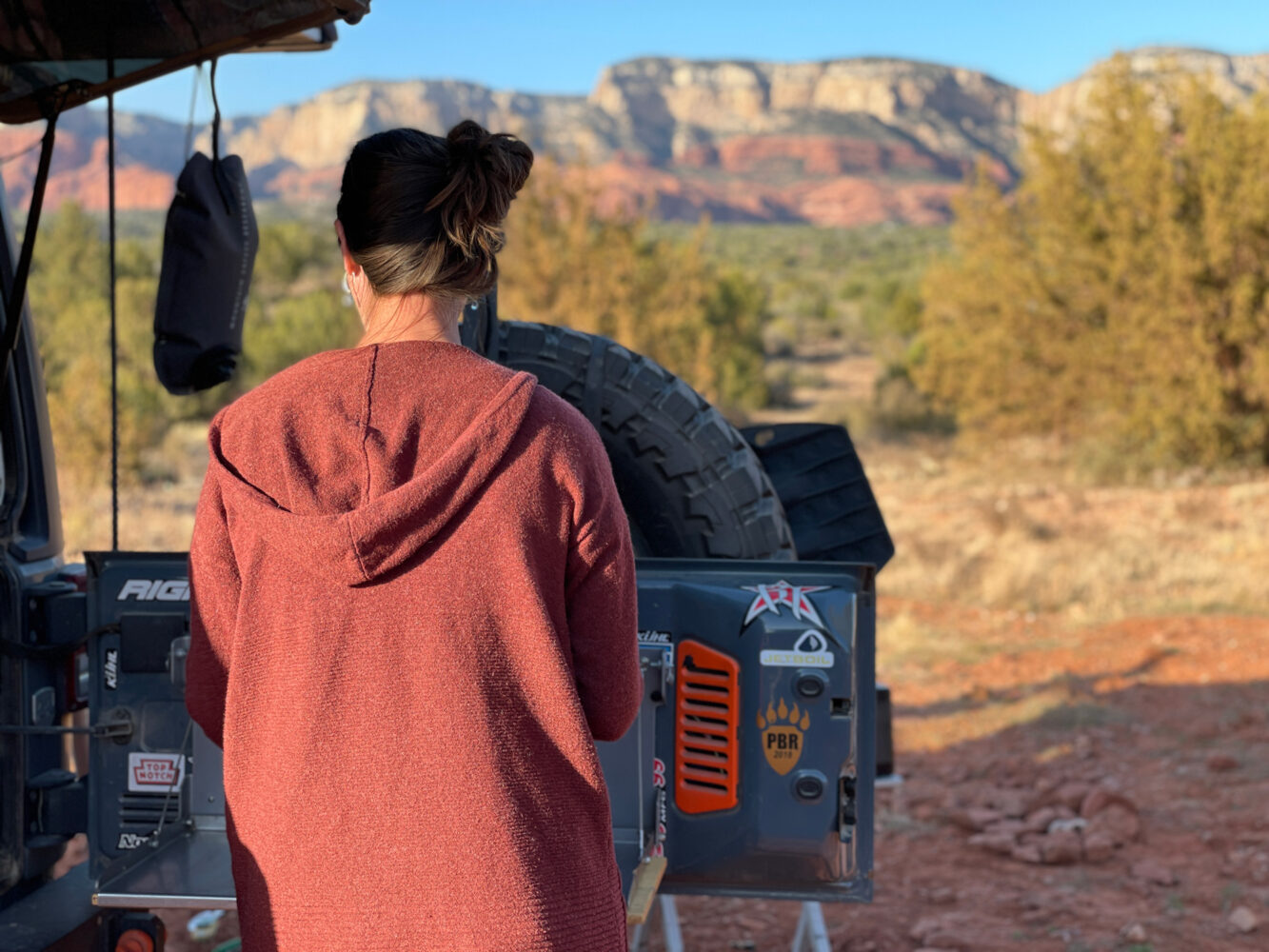
It’s a privilege to choose to travel the way we do. Because he was born on the road, my son won’t struggle to learn lessons that, in comparison, have been knocking me down. The characteristics I’m developing slowly through travel will be ingrained in him: experience, perseverance, faith, acceptance. Together, our family drives toward this new way as the deprivations fall away, mere road noise.


